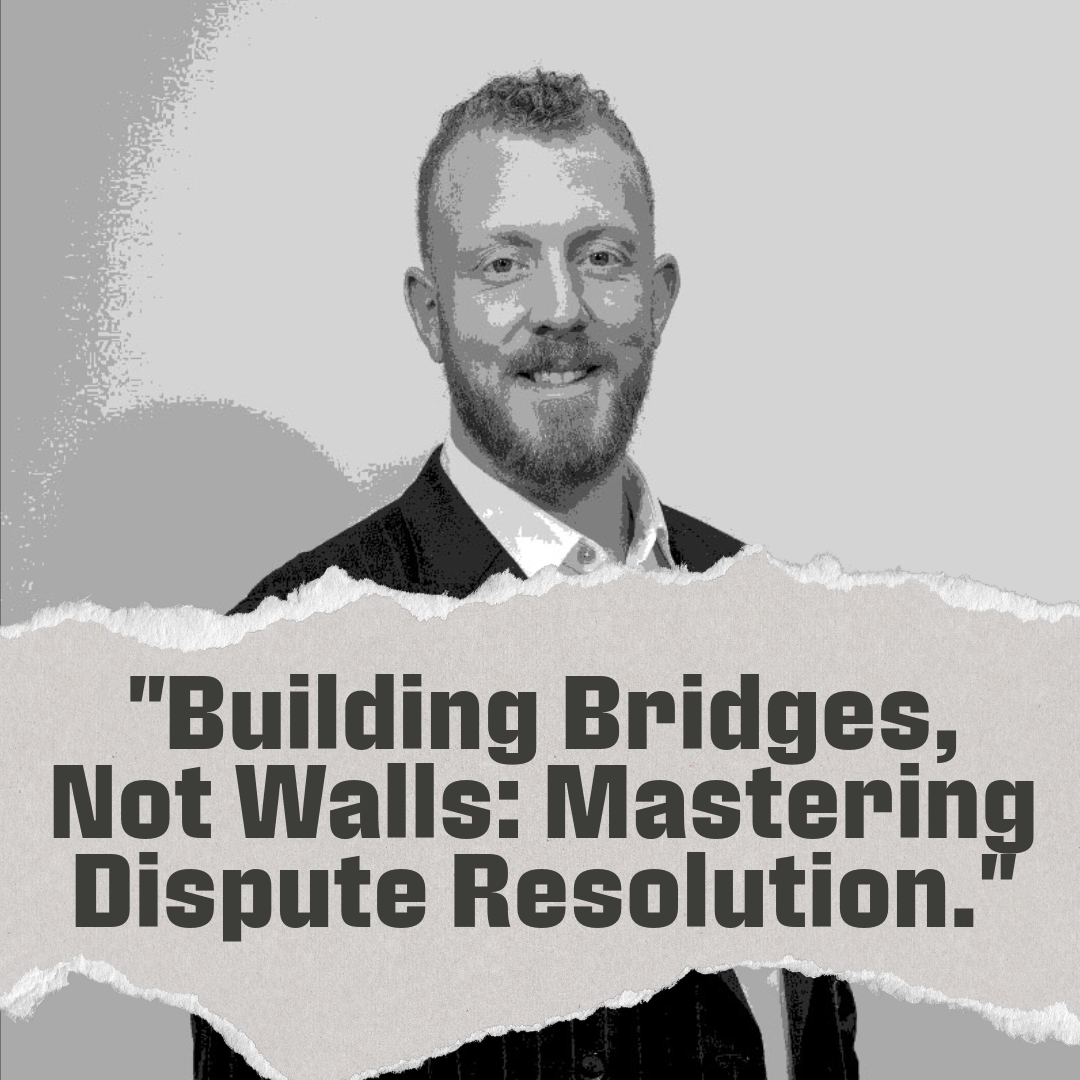

Alternative Dispute Resolution
Welcome to our Alternative Dispute Resolution (ADR) Services! We specialise in providing expert ADR solutions that help resolve construction disputes efficiently and effectively across Australia. Our team is dedicated to resolving your disagreements and disputes and ensuring your projects and matters proceed smoothly without the need for lengthy litigation.
Call us now on (02) 8084 4333 with a brief description of your issues and we will take them to resolution
Alternative Dispute Resolution Services
Mediation
Preparation of briefing papers and advising senior management on disputes in addition to representation or support at mediation conferences
Negotiation
Development of negotiation strategies and providing advice on proposed structure and approach settlements.
Adjudication and Arbitration
Adjudication and arbitration technical support as well as attendance at conclaves and hearings.


Why choose Contract Australia to resolve your dispute?
- Expertise: Our team of experienced ADR professionals brings a wealth of knowledge to every case, ensuring fair and equitable resolutions.
- Comprehensive Solutions: We offer a range of ADR services, including mediation, negotiation, adjudication, and claims management, tailored to meet your specific needs.
- Proven Track Record: We have successfully resolved numerous disputes, helping clients, contractors and service providers avoid costly and time-consuming litigation.
Our Services
- Mediation: We facilitate negotiations between parties to reach a mutually acceptable resolution, saving time and preserving relationships.
- Negotiation: Our negotiation services help parties reach agreements through constructive dialogue and compromise.
- Adjudication: We offer adjudication services for quick and cost-effective resolution of disputes, particularly in the construction industry.
- Claims Management: We manage and resolve claims efficiently, ensuring that all parties’ interests are fairly represented and protected.
One of the main benefits of working with a professional in contractor dispute resolution is that it is usually faster and less costly. Going to court can be expensive and may take you a lot of time to solve something quite simple. In addition, a neutral party will give you both an opportunity to tell your story, determine what could have caused the dispute, and help you see why the suggested resolution is the best decision for you.
Using a neutral third party also makes the nature of your dispute confidential. You don’t want to be the contractor with a reputation of being taken to court by a client because of a disagreement. Besides, a third party can help prevent conflict between you and your client.
You should consider working with Contract Australia to solve your construction disputes. We provide expert guidance on project management, commercial, construction, and infrastructure contract disputes. We handle everything from pre-contracts and cost engineering, contract and commercial management, dispute resolution, and mitigation assistance to expert guidance in project management.
What is dispute resolution?
When there is a disagreement between you and the client on your contract, you can find a way to resolve it without going to court. If you both agree, you can use the services of a neutral party like an arbitrator or mediator to help in reaching an agreement that can benefit you both. Conceptually, the fundamental goal of dispute resolution is to provide a forum for you and your client to come into a consensual, voluntary agreement instead of letting a judge or any other authority make the decisions for you.
Dispute resolution in construction contracts is not just important to you but also to your client as well. This is because they save you both a lot of time, make you understand each other better, strengthen your relationship, and help you find the best way to move forward.

Why are disputes common in construction contracts?
Lack of perfection when drawing up the contract documents
Drafting something and making it appear as designed is not as easy as you may think. One very tiny error in detailing can cause huge problems that build up as the work continues. At times, you won’t see the mistake in the contract until after you start the construction process.In addition, human error can also come into play. Omitting an important condition while creating the contract can lead to misinterpretation or miscommunication between you and the client. So, if you want to avoid any errors, make sure that after you draft the contract, you must review it and discuss it even further with experts before you start the process.
Inaccurate site conditions
Failing to account for unexpected variations on the surface from your survey will definitely lead to contract disputes. You should always leave room for the unexpected or ask for a second opinion from another professional, i.e. if you are not absolutely confident with your survey team.Also, make sure that you account for subsurface conditions. Things like soil, rock, or any other underground structures of the land can cause errors in the construction, particularly when they are completely different from what you had planned for. You could be forced to ask your client for extra money to make up for these unexpected occurrences, which are not often received well.
Not knowing the people you are working with well
You will be dealing with different kinds of people in different stages of your work. Therefore, errors might occur if you are not good at working with these individuals, understanding them, supervising, and appreciating what they are doing at every step of the way.

How do you resolve disputes?
You can achieve building contract dispute resolution in the following ways: reviewing your contract, communicating and negotiating, mediation, and arbitration. You won’t have to go to court when either of these mechanisms works.
Reviewing your contract
The first construction contract dispute resolution step involves carefully checking and reviewing your contract with your client. While going through your contract, give special attention to the parts that the disputes arose from. Take note of how either of you breached the terms of the agreement and talk about it openly with your client. If your contract has a dispute resolution clause, follow the steps set out to address your disagreements. However, if you didn’t draft a formal review, go through your messages, emails, or other correspondence relating to the work you are doing. For example, if the client sent you an email with the pricing, how the work should be done, and the timeframes, that email can amount to a binding agreement when resolving your disputes.
Communication and negotiation
You can also achieve contract dispute resolution through open communications and negotiations between the parties involved. If you are always keeping in touch with your client all through the stages of the construction, it would be very easy to resolve any disputes that arise before they get out of hand. Always remember to be professional, ready to compromise, and give them ample time to respond with all things considered.
Mediation
If the basic contractor dispute resolution mechanisms don’t work, you should consider using a neutral third party. A mediator will help come into an amicable agreement that works best for you and your client. They will document what you have agreed upon, including resolution terms with signatures and copies for both parties.
Arbitration
Arbitration is a more formal method of mediation. An arbitrator will act as a judge to determine the best way to deal with your dispute. The terms of resolution you come up with are binding and enforceable, just as it is with court. If you are taking this route, ensure that you have your attorney around to guide you through the process.

Get in touch now for a Fee Proposal for your matter
Contract Australia follows the best industry practices when advising and promoting Building, Civil, Construction, Infrastructure & Energy clients on projects and matters. Our experienced and independent professionals are highly qualified, industry recognised professionals with unique experience throughout the industries.
